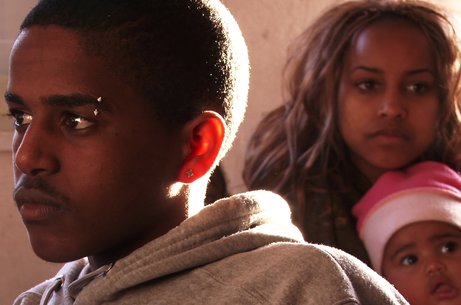
Four Gates Cambridge Scholars will show their films in the first Scholar-made Gates Film Festival on 1st February.
Films on immigrant teenagers in Israel, DNA origami, a paper crane and a local market trader will be shown at the first Scholar-Made Films Festival in February.
The event takes place on 1st February and the film-makers of the four films will take part in a Q & A following the screening of their work.
The film-makers are:
Kerstin Goepfrich [2013] who will show her film on DNA origami, DNA Origami: folding on the smallest scale, which was a finalist in the first Cambridge Shorts competition. Kerstin is doing a PhD in Physics on DNA origami and on how it can be applied to biomedicine and used in smart drug delivery systems which target certain cell types, for instance, as adaptors that control the function of protein pores in cells. The film presents an encounter between an artist and a scientist which leads to a compelling journey through the macroscopic world of paper origami and the microscopic world of folding DNA. Fellow Gates Cambridge Scholar Axel Bangert [2006], who did a PhD in Modern and Medieval Languages, was both editor and director of photography on the film.
Noa Levin [2014] whose film is about immigrant teenagers in Israel. She is doing an MPhil in European Literature and Culture. She grew up in Jerusalem and majored in Film at Tel Aviv University, focusing on screenwriting and directing. While there she wrote and directed three short films, all of which deal with ethical and political questions, and the relation between the individual and society at large. The documentary film she will show, Srulik [pictured], is one of these. It is about 17-year-old Srulik, an Israeli-Ethiopian youth who has been ‘kicked out’ of the educational system. He works cleaning floors, dreams of being a famous rapper and writes songs. His songs tell the story of the teenagers in the Shapira Neighborhood in small-town Gadera, their lives and fantasies. When the Ethiopians protest against racism, Srulik puts his feelings into words and gives the protest a voice.
Irene Falk [2014] who has created an animation of a paper crane. All frames were hand-drawn and photographed using an Oxberry Animation Stand provided by the Duke University Film/Video/Digital Department. She is doing a PhD in Clinical Neurosciences.
Kyndylan Nienhuis whose film revolves around an interview with the man who runs a waffle stand in Cambridge market and some of his patrons. Kyndylan [2013] is doing a PhD in Computer Science.
The films will be shown in the Gates Cambridge Common Room at 7pm.












